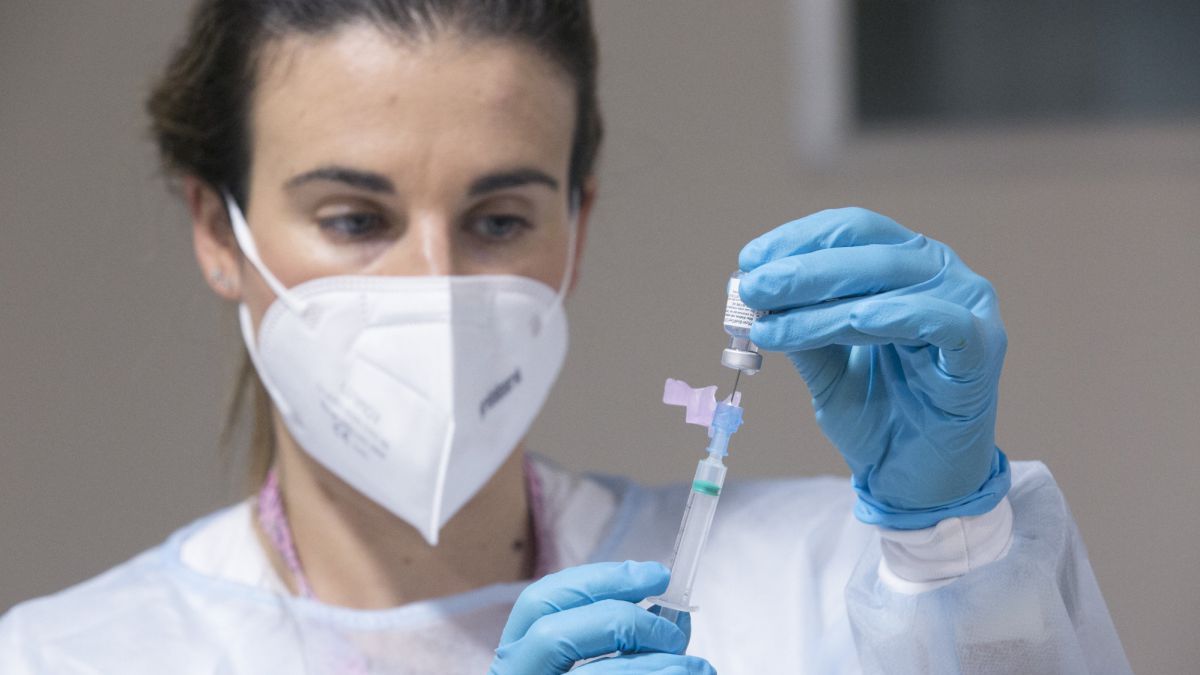Read more from Author Melissa Galbraith here: https://globelivemedia.com/author/melissa-galbraith/
A few weeks ago, Mario Mellado, immunologist and director of the National Center for Biotechnology (CNB), announced that the Spanish vaccine developed by virologists Mariano Esteban and Juan García Arriaza in the Higher Council for Scientific Research (CSIC) showed a 100% efficiency in the mouse tests. Encouraging results that have now been published in Journal of Virology.
“We have observed that the MVA-CoV-2 vaccine candidate generates a robust immune response with production of neutralizing antibodies and activation of T lymphocytes in mice ”, Esteban assures in an article published in the prestigious magazine. “The vaccine confers a 100% protection against SARS-CoV-2 in a model of humanized mouse susceptible to infection by SARS-CoV-2, which is very important, ”his colleague Arriaza specified in a note released by the CSIC.
On the development of the vaccine, a variant of the virus that was used to eradicate smallpox. The Spanish state agency explains in its statement that the Modified vaccinia virus of Ankara (MVA), “has been modified to express the complete S protein of SARS-CoV-2, which is the key that allows the entry of the coronavirus into human cells ”. “Incorporated into the MVA vehicle, this protein is produced as soon as the virus enters the cell and is what teaches the immune system how you should recognize the real coronavirus and how you should eliminate it“, Add.
Complete inhibition of replication with two doses
The most important data of the research is that the vaccine produces “high levels of IgG antibodies specific against the coronavirus S protein and its binding domain with the ACE2 protein that serves as a receptor for human cells ”. In addition, the study has shown that the administration of one or two doses gives a 100% protection humanized mice against SARS-CoV-2 disease and lethality. AND with two doses there is a complete inhibition of virus replication in the lungs. “These results demonstrate that the MVA vector-based COVID-19 vaccine produces a robust immunogenicity and one full efficacy in animal models, and support its future application in clinical trials “, indicate the researchers in the article.
Scientists also note that combined vaccination with two different vaccines, one in nucleic acid-based first dose (S-DNA) and another in second dose (MVA-CoV2-S), produce higher levels of T-cell activation than the administration of two doses of MVA-CoV-2-S, which is relevant when it is intended to increase the population of T lymphocytes to achieve broader and longer immune responses.
Clinical trials in a few weeks
The CSIC has an agreement with the Spanish biotechnology company Biofabric, which has offered its facilities to develop the vaccine under conditions of use for humans. The next step, therefore, will be to receive the authorization from the Spanish Medicines Agency to start clinical phases I and II of clinical trials, which could begin in a few weeks. With this schedule, the vaccine would not be ready until late 2021.
Along these lines, the CSIC has reported that the Biofabri company is manufacturing the GMP batches (Good Manufacturing Procedures, for its acronym in English) that will be used in these clinical trials and that the industrial process for the manufacture of commercial batches has already been defined as soon as the clinical development phase concludes.
The other Spanish vaccine
In addition to the one created by Mario Esteban and Juan García Arriaza, there is another Spanish vaccine that is very advanced. It is the one developed by the team led by Luis Enjuanes, based on a “synthetic virion which has many of the characteristics of the virus, but is not transmissible from cell to cell ”, explained Mario Mellado. The virion enters cells, but no longer leaves, does not pass to other cells. “This is very interesting because this virus has the same proteins on the outside as the real virus and allows generating a very powerful and long-lasting immune response.”
Due to its complexity, the creation process is being much slower and it is more difficult to negotiate with companies willing to develop it because a very specific technology is used that few companies can assume. The last information was that there was interest from a company in Belgium: “We are in talks with them and I hope that the path will be paved soon,” said Mellado.

